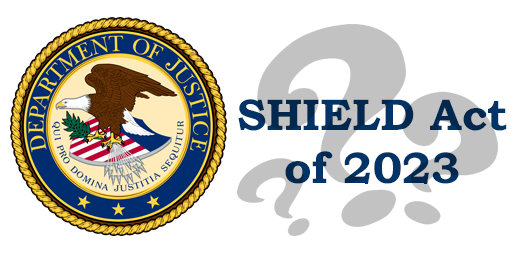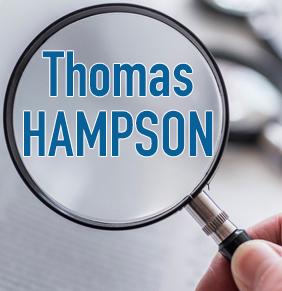
In mid-July, the U.S. Senate passed and sent to the U.S. House the SHIELD Act of 2023, an acronym for “Stopping Harmful Image Exploitation and Limiting Distribution Act.” According to the summary of the act:
“the bill makes it a crime to knowingly mail or distribute (or attempt or threaten to distribute)
- “an intimate visual depiction of an individual with knowledge of the individual’s lack of consent, where what is depicted was not voluntarily exposed by the individual in a public or commercial setting, and where what is depicted is not a matter of public concern; or
- “a visual depiction of a nude minor with the intent to abuse, humiliate, harass, or degrade the minor or to arouse or gratify the sexual desire of any person.”
I’m not sure why the provisions regarding nude minors were included in this bill since I would think those crimes are already covered under existing child pornography statutes. Regarding the intimate visual depictions of adults being distributed without their consent, that provision is targeting exes, who, for the purpose of embarrassing or humiliating their previous lover, publicly post the images they received or took privately.
Why does this need to be a federal crime? And more importantly: who is going to enforce the law?
There are 93 United States Attorneys covering the 94 judicial districts. One US attorney covers the territories of Guam and the Mariana Islands, each a separate judicial district. As of 2020, there were approximately 137,000 federal law enforcement officers, with around 86,000 criminal investigators.
The most likely federal agency to investigate these crimes would be the FBI, an agency with approximately 14,000 special agents, or maybe the postal inspector, with 1,300 agents.
In a recent interview, U.S. Senator Mike Lee (R-UT) told Tucker Carlson that he had asked the Congressional Research Service to find out how many federal crimes are currently on the books. After a valiant effort to answer his question, the researchers reported that the exact number “is unknown and is unknowable” but that the number of federal crimes created by statute and regulation exceeds 300,000.
Three hundred thousand crimes!
There are far more federal crimes than anyone can hope to enforce. Every new one created by Congress makes the job even more impossible. Every Congressman knows this. So ask yourself, why do they keep passing these laws that seem to address some vital public interest when they know there are not enough people to investigate or prosecute them?
The answer is simple. The vast majority of our elected officials are not serious about solving the problems we face.
Things aren’t much better in the various state and local jurisdictions, where most crimes, such as those addressed in the SHIELD Act, should be more properly addressed. In all the states and territories, full-time local law enforcement officers total approximately 700,000. Of those, only about 12%, or 84,000 are detectives to cover thousands of jurisdictions.
Let’s bring this home to Chicago. The latest figures show approximately 11,700 sworn officers in Chicago, of which 1,000 are detectives. Between July 2023 and June 2024, the city had approximately 29,500 violent crimes and 65,000 property crimes. Of the property crimes, 30,500 were vehicle thefts. That would be 94.5 cases per detective, 60 of them major cases. This doesn’t even include cases they refuse to classify as crimes.
An enormous number of crimes never make it into the statistics. Here’s just one example. Many years ago, I had a case involving the embezzlement of $500,000 via wire fraud. The feds would not take the case as their threshold at the time was $1,000,000. The Cook County State’s Attorney gave me the same answer—not enough money was involved, so handle it in civil court. This happens all the time.
Many cases filed in civil court could just as easily be in criminal court.
We don’t need more state and federal laws. We need to enforce more laws that are already on the books.
Many possible crimes covered in the SHIELD Act could be prosecuted using existing obscenity statutes or child pornography statutes. Child pornography crimes were originally prosecuted using obscenity statutes. Many experts thought it was unnecessary and counterproductive to create a separate law addressing child pornography specifically. I think they were right. The problem was that many prosecutors were too concerned about their conviction rate to pioneer new case law. It was the reluctance of prosecutors in Illinois that led my former agency to help draft Illinois’ first child pornography statute.
It is not clear to me why the SHIELD Act is necessary, especially since the federal prosecution of obscenity cases has dwindled into nothingness over the same period that the grossest obscenities online are proliferating more rapidly than maggots on a rotting corpse.
How did this happen?
In 1985, during the Regan Administration, then-U.S. Attorney General Edwin Meese established a Commission on Pornography to investigate the effects of pornography on American society and to recommend ways to address the harms it causes. The Commission conducted public hearings across the country, gathering testimonies from a wide range of individuals, including victims of sexual violence, law enforcement officials, psychologists, and representatives from the pornography industry.
The final report was issued in 1986.
The Child Protection and Obscenity Enforcement Act of 1988 was one outcome of the Meese Commission investigation. Another outcome was creating a special prosecution unit within the U.S. Department of Justice, headed by H. Robert Showers.
The unit used a variety of federal statutes, including the Racketeer Influenced and Corrupt Organization Act (RICO), to pursue criminal cases against pornographers and other publishers of obscene material. They also coordinated with and assisted local prosecutors in efforts to suppress obscene material and to protect the vulnerable.
The unit enjoyed significant success. In 1990 there were 74 federal cases prosecuted. When the Clinton Administration took over in 1992, obscenity cases were dropped as a priority, and the unit was converted into the Child Exploitation and Obscenity Section (CEOS) of the Justice Department. There still was an interest in pursuing child pornography cases, but interest in suppressing the broader problem of obscenity dissolved just as the growth of the internet began to explode.
In 1995, fourteen percent of U.S. adults regularly accessed the Internet. Five years later, by the year 2000, that number had increased to 46 percent. It is estimated that 10 percent of those who use the Internet do so to access pornography. Not only has the pervasive availability of pornography heavily contributed to the overall sexualization of our culture, but it also has removed almost all barriers to children being exposed to the most vulgar content with virtually no restrictions.
A culture cannot be awash in obscenity without it having an extremely negative impact on children. The problem is not confined to child pornography. It also involves any obscene material available to and consumed by children.
The George W. Bush Administration tried to address this by creating the Obscenity Prosecution Task Force in 2005. The unit focused on material that fit the obscenity definition the U.S. Supreme Court laid out. The unit cooperated with the CEOS and the Organized Crime Unit of the Justice Department in its investigations and prosecutions.
The Obama Administration dropped such prosecutions as a priority and deactivated the unit in 2011. Since then, there has been no federal effort to address adult material that would meet existing obscenity standards.
The lax view on obscenity has extended even to the sexualization of children. The French film Cuties is an example. The film was produced in France and released at the Sundance Film Festival in January 2020. Netflix acquired the global distribution rights and added the movie to its streaming service.
To say the least, the film is controversial. Child actors in revealing costumes engage in highly sexualized dance routines. The explicit choreography mimics adult sexual behavior. Any decent prosecutor should have been able to make the case that this film sexually exploited children for the purpose of adult entertainment.
Only one case was brought by any prosecutor in the United States: the District Attorney in Tyler County, Texas, who apparently was only interested in personal publicity. In fact, the U.S. Court of Appeals for the Fifth Circuit ruled that the prosecutor brought that case in “bad faith.”
It seems that there are no U.S. Attorneys and no local prosecutors who have any real interest in protecting children from direct exploitation, much less from obscene material involving adults.
Here’s another example from several years ago. Many years ago, before child pornography statutes, Playboy magazine took sexually suggestive nude photos of several different teen minors and published the photos. At the time, prosecutors did not believe they could bring charges that would stick so they did nothing. Once the laws were passed that would have allowed prosecution, no charges could be brought because it was after the fact.
However, several years ago, all Playboy magazines were republished electronically. My late friend, Dr. Judith Reisman, asked me to document that several of the girls pictured in some of the magazines, electronically republished, were underage at the time. As I recall, there were at least four that I was able to prove were underage. Neither Dr. Reisman nor I could find any U.S. Attorney or local attorney willing to bring charges.
We either care about protecting children, or we don’t. These two examples clearly show that those who represent us don’t care and that there is no interest in holding the line on child protection.
So, why the SHIELD Act?
Again, it’s virtue signaling, not a serious effort to solve our problems.
Instead of encouraging our government representatives to pass the laws we want, we need to get people elected who will be dedicated to fixing our system. The first order of business should be to make our system one that protects childhood innocence. And parents must take the central role.
The SHIELD Act, and laws like it, won’t help.
“Our Constitution was made only for a moral and religious people.
It is wholly inadequate to the government of any other.”
~John Adams~





















